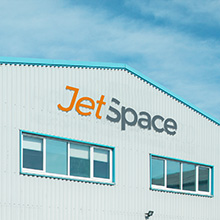
Navigating the 2024 Commercial Real Estate Landscape
As we step into 2024, the commercial real estate sector, particularly in the UK, is bracing for transformative shifts. The latest Deloitte 2024 Commercial Real Estate Outlook offers valuable insights into the trends and challenges that are shaping the industry. There’s a wealth of great data here so we wanted to dissect the report’s findings to try and better understand how the commercial office market looks set to evolve in the coming years. Though the report is primarily US focused we’ve tried to extract the insight most appropriate to the UK market.
Mitigating Expenses in a Challenging Market
One of the main issues the Deloitte report highlights is how expense mitigation has become a key priority for the industry, with revenue expectations hitting their lowest since the report began in 2018. This trend, encompassing talent and office space, signals a cautious approach among businesses. With this in mind, the demand for cost-effective and flexible office solutions, in desirable locations, is likely to grow. Serviced offices, known for their scalability and convenience, could emerge as a preferred choice for businesses looking to manage expenses wisely.
The Financing Conundrum
The report points to concerns around rising interest rates and inflated capital costs. Approximately half of the survey respondents anticipate worsening conditions in capital availability and cost in 2024 and beyond. This suggests a more challenging environment for large-scale investments in commercial real estate, potentially leading businesses to seek alternative solutions that require less capital commitment.
Again, this suggests serviced office and flexible workspaces such as those offering coworking options, will be most likely to prosper. Whilst giant blocks with huge square footage and costs to match, may need to be retrofitted to suit multiple tenants in different space configurations, if not converted entirely.

ESG Compliance Challenges
Another critical finding is the industry’s readiness to meet Environmental, Social and Governance (ESG) regulations. With nearly 60% of firms lacking the necessary data and processes for compliance, there’s a clear gap in the market for sustainable office solutions. Handing over much of this responsibility to a third party, such as building management operators, could be increasingly seen as a way in which to achieve compliance.
Buildings with their own ESG policies and policing allow businesses operating within them to tick the right boxes without needing their own dedicated ESG departments.
Efficiency Savings Through Outsourcing
To drive efficiency, many real estate firms are planning to make use of outsourcing, primarily to improve technological capabilities. This could lead to a rise in the adoption of tech-enhanced serviced office spaces, which offer advanced facilities without the need for heavy investment in technology infrastructure.
High tech office spaces fitted with energy efficient lighting and equipment can offer significant cost savings over time, as well as offering enhanced security and access functionality for tenants. Not to mention the wellness benefits of having optimally heated and ventilated spaces supported by lush greenery that can be cared for by effective technological monitoring.
Shifts in Structural Expectations
With expectations of worsening leasing fundamentals, such as increased vacancies and reduced rental growth, the commercial office space sector could experience a shift towards more flexible leasing arrangements. This trend will likely benefit providers of flexible and scalable space options.
It could be a lot easier for office providers to manage a series of smaller spaces housing multiple tenants in flexible suites than looking after a single multi-storey dedicated office building in the heart of the city. As traditional large scale leased office tenants continue to downsize their operational requirements, city skyscrapers will remain challenging to fully let.
Targeting New Property Sectors
The Deloitte report also indicates a growing interest in alternative property sectors like digital economy properties, single-family rentals and life sciences. This diversification suggests that businesses are looking for office spaces that can accommodate a range of activities, from tech-focused operations to research and development.

The Office Market in Transition
Remote working is here to stay and has led to a significant shift in the demand for office spaces. With office space utilisation stabilising at lower than pre-pandemic levels, businesses are increasingly seeking office solutions that cater to hybrid working models. Serviced offices, with their flexible terms and amenities, align well with these emerging needs.
It also impacts how quickly a firm might need to scale as gone are the days when a growing workforce immediately necessitated more desk space. Instead businesses are able to grow in numbers without requiring an office space capable of housing every staff member every day.
Embracing Change in the UK Office Market
Navigating through the complexities of the commercial real estate market in 2024, it’s clear that flexibility, technology integration and sustainability will be key drivers in the office space sector that emerges from the challenges of the past four years. Businesses seeking to adapt to these changes while managing costs effectively should consider the advantages of serviced office spaces.
JetSpace, with our office space to rent in Brighton and at Shoreham airport, stands ready to meet these evolving needs. Offering great locations, excellent facilities, inclusive rates and flexible terms, we are ideally positioned to support businesses through the shifting landscape of UK office space.
Contact us to learn more about our serviced office space availability in Brighton city centre and at Shoreham Airport, and see how we can help your business thrive in 2024 and beyond.
Call on 01273 917977 or complete our enquiry form
enquire book a viewing

